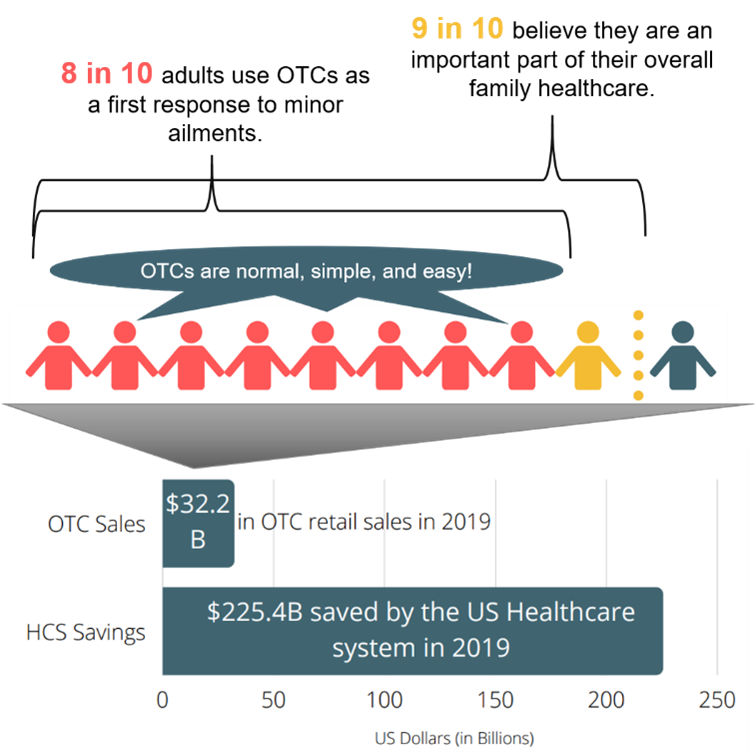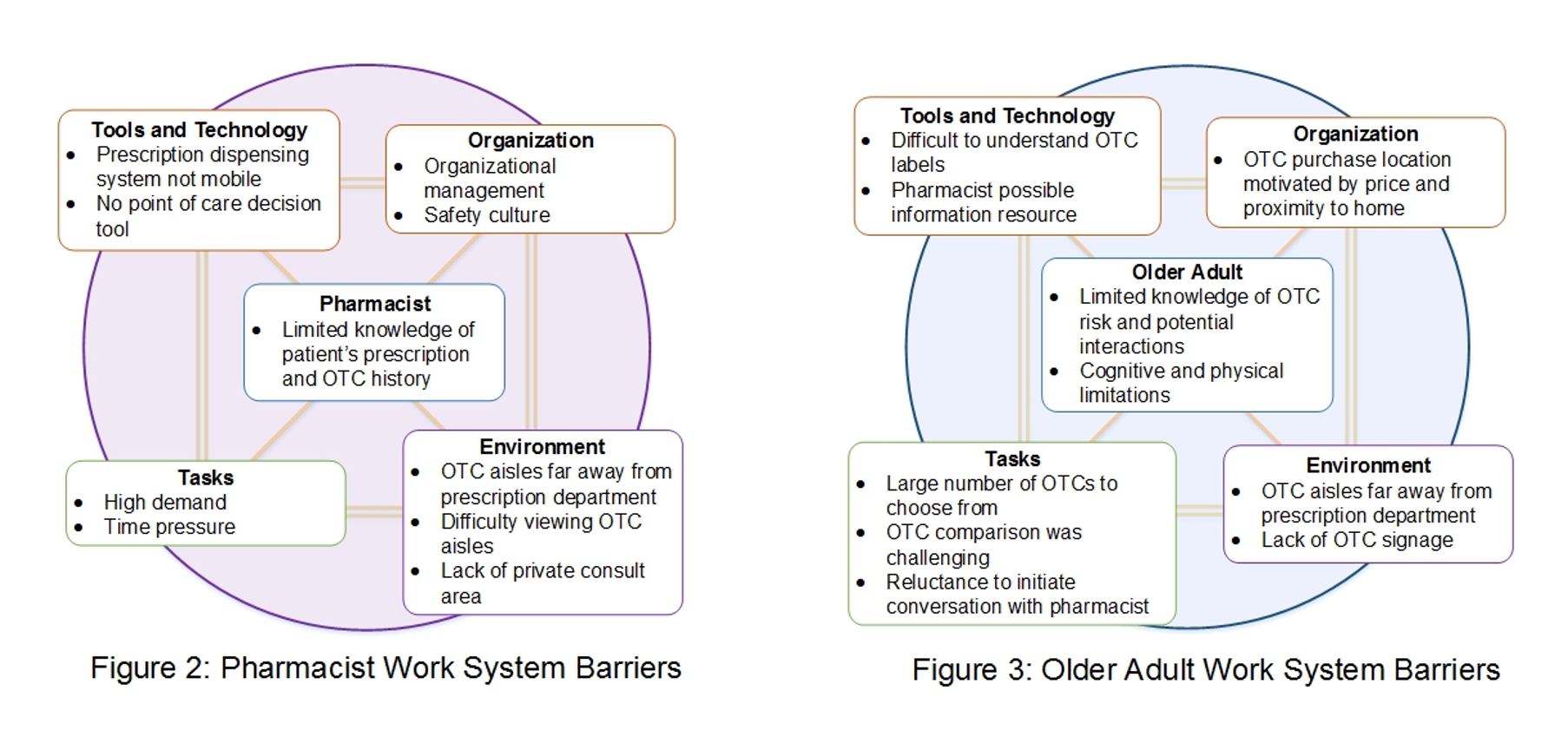Over-the-counter (OTC) medications are nonprescription drug products approved by the U.S. Food and Drug Administration as safe and effective for use by the general public without seeking treatment by a healthcare professional.
As Figure 1 shows, US consumers spent $32.2 billion on OTCs in 2019. It is estimated that the US healthcare system saves $7 for every $1 spent on OTCs, which roughly translates to $225.4 billion saved by the US healthcare system in 2019 alone.

Studies have shown that consumers perceive OTCs to be normal, simple, and easy. In fact, 8 in 10 US adults use OTCs as a first response to minor ailments, and 9 in 10 believe OTCs are an important part of their overall family healthcare. Unfortunately, the rising usage rates of OTC medications is causing concern among public health officials.
Research shows this perception that OTC use is common and simple may lead consumers to overestimate the safety of these products. As new medications are made available for purchase without a prescription, it is becoming more and more difficult for healthcare providers to ensure patient safety. The scope of concern with respect to OTC medication use is underscored by 178,000 hospitalizations each year due to adverse drug events (ADEs) associated with OTC medications.
Older adults (65+), who represent 13% of the population, account for a full third of the OTC medication use in the United States as well as 61.5% of ADE-associated emergency department visits. As life expectancy lengthens and the proportion of older adults in the population increases, so does the need for interventions that help older adults use OTC medications safely and effectively.
Many of our projects have focused on preventing OTC medication misuse by community-dwelling older adults, a critical issue that had been left largely unaddressed.
Our preliminary studies helped us to identify both pharmacist barriers (Figure 2) and older adult barriers (Figure 3) to safe over-the-counter medication selection in the community pharmacy.
